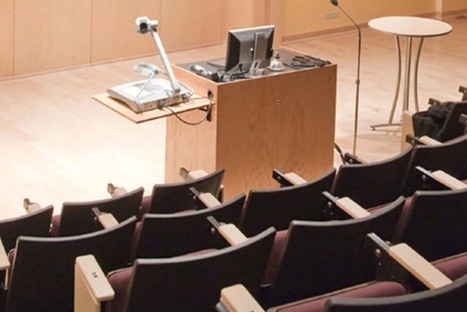The more curious we are about a topic, the easier it is to learn information about that topic.
From Learning & The Brain Society:
Curiosity changes the brain to enhance learning
Medical News Today
New research published online in the Cell Press journal Neuron provides insights into what happens in our brains when curiosity is piqued. Investigators discovered that curiosity motivated learning, and increased activity in the hippocampus, a brain region that is important for forming new memories, as well as increased interactions between the hippocampus and the reward circuit. "So curiosity recruits the reward system, and interactions between the reward system and the hippocampus seem to put the brain in a state in which you are more likely to learn and retain information, even if that information is not of particular interest or importance," explains principal investigator Dr. Charan Ranganath.
Via iPamba, Mark E. Deschaine, PhD



 Your new post is loading...
Your new post is loading...








